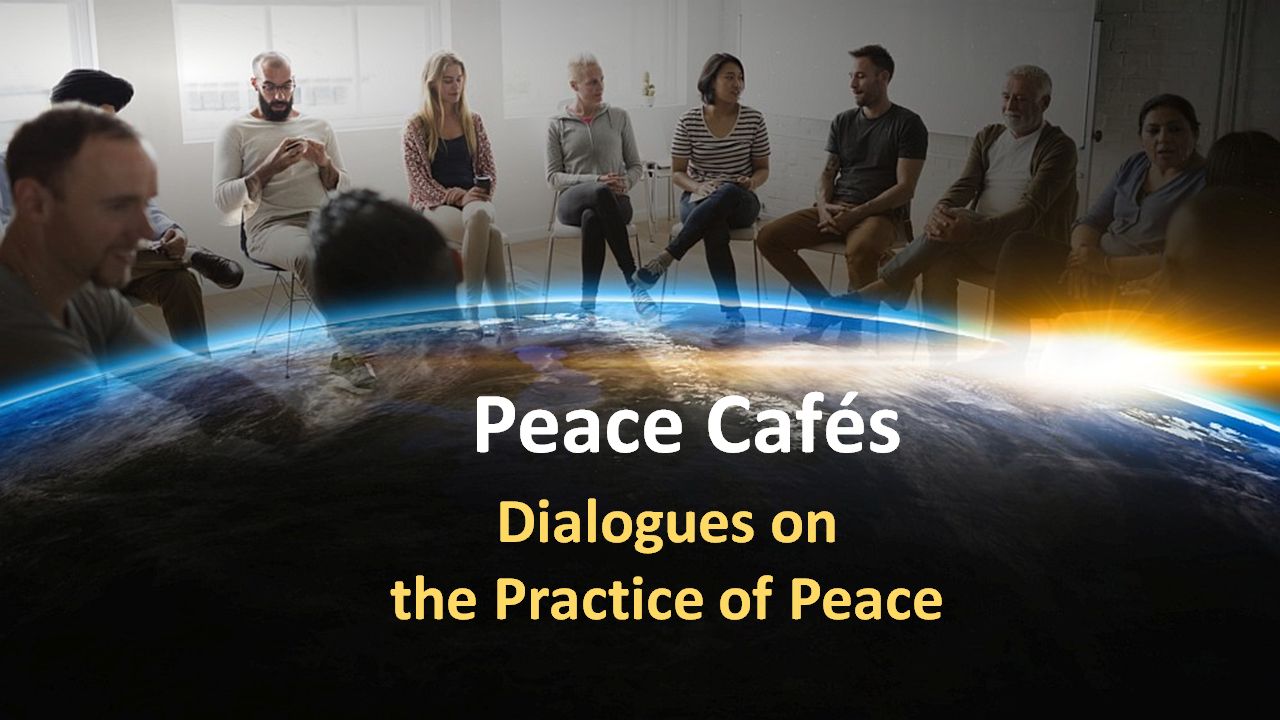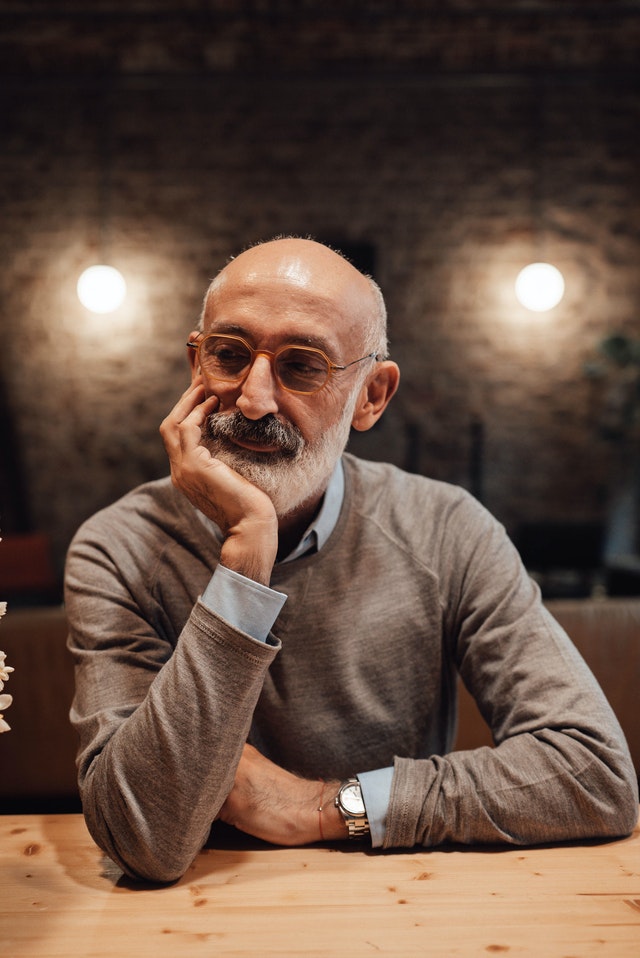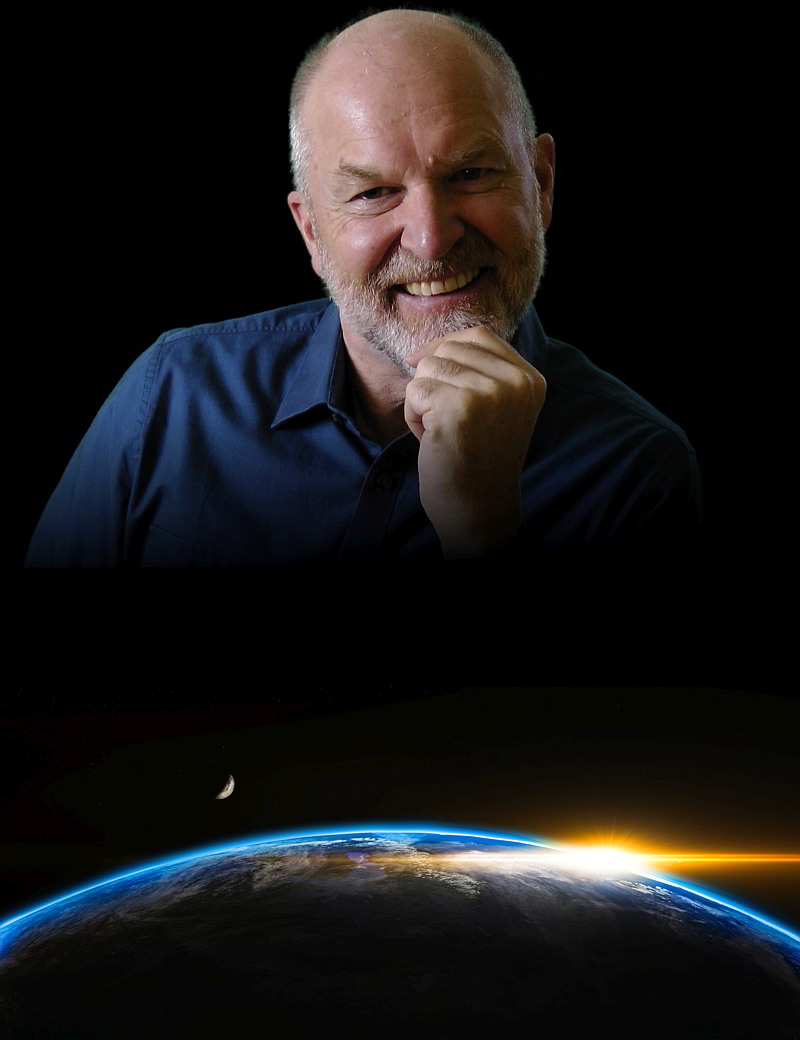
Do you have a passion for peace?
- Are you a peace activist or concerned about the division and polarization in the world?
- Do you have a passion to expand love, peace and connection in your family or community?
- Are you longing for more inner peace or ready to bring your inner peace into outer action?
Join Us to Build Capacity for Peace, Together!
To transform and transcend current cultures of fear and violence into cultures of peace, requires a shift in consciousness, individually and collectively. It requires us to learn to 'think together' outside the box of our current world views. Even more, we need to "Become the peace we seek" by doing the 'inner work' such as shadow integration work.
Peace Cafés are an opportunity to deeply connect, Dialogue, learn and grow with each other as we seek to understand the challenges and opportunities of our time. Their purpose is to discover shared meaning and develop the capacity for a higher order of thinking and being together. We'll open space for the emergence of new insight into how we co-create sustainable cultures of peace in our world.
At a Peace Café, there is nothing to join, no homework, and no agenda - just a simple process that will help us to elevate our influence and impact in peace matters and share our gifts. Using the Bohmian Dialogue method, we'll practice and develop four core capacities that are critical in co-creating a culture of peace. These practices are Suspending, Respecting, Voicing and Listening.
Peace Cafés are an opportunity to clarify and elevate your piece of peace.
Peace Café Schedule
Start off by coming to one Café, just to get a taste of the experience! Then, if you like the first taste, come again as often as you can, because it just gets better and better as you go deeper and deeper into connection and community with others. That's when the real magic starts to happen!
NOTE: The Café times listed below are North American EASTERN Time. Click the images below to get more information on each Cafe.
Richard is all about 'being the change' that we want to see in the world - both inner and outer. For the last 20+ years, he has studied, taught and developed ways to create change from the inside - out. These inner change technologies include how to quickly change limiting subconscious beliefs and for even more powerful inner shifts, how to do shadow integration to become 'whole 'again. Richard's shadow integration technology is actually done through a powerful inner dialogue process that heals past inner wounds and traumas through forgiveness.
Richard has also studied and worked with organizations and communities around change for over 20 years. This work includes teaching and facilitating using whole-person meeting technologies such as Open Space Technology and Genuine Contact™ as well as working with purpose and values alignment.
Richard has a passion for peace. He has helped hundreds of individuals overcome challenges to find more inner peace and has facilitated many groups such as Rotarians to organize themselves to create more peace in the world. In 2020, he co-created and facilitated a Peace Leaders group in Moncton, Canada to reach the goal of becoming an International City of Peace. He also co-created and facilitated Peace Cafés in the Moncton area and online. Essentially, these Bohm Dialogues are the next step in the evolution of the Peace Cafés!
About Richard
Richard Schultz assists leaders in unlocking their true potential, authentic power and inner wisdom to create extraordinary, high impact lives. Courses, life mentoring and dialogue with Richard can help you live your legacy and build capacity to thrive with change!

|
Copyright © 2024 J. Richard Schultz All Rights Reserved Privacy Policy Terms of Use |
To reach the depth of learning, understanding and shared meaning that can come from Dialogue, it is important to have enough time and an open, inviting meeting environment. For teams and complex relationships/situations, it is beneficial for the groups to continue meeting on a regular basis for weeks, months or even years, expanding their capacity to think together, trust, and collaborate. Dialogue becomes core to an agile, creative way of working together.
The agenda for a Bohm Dialogue tends to be very simple.
1. Welcome: The Dialogue host welcomes participants, explains the Dialogue practices and shared agreements (such as confidentiality) and invites participants into agreement. If there is a subject or theme for the dialogue, this is clarified.
Participants will generally be invited to sit in a circle and often use a "talking object" to honor and respect the relationship between speaker and listener without interruption.
2. Check-in: Each participant does a brief 'check-in,' introducing themselves if necessary, and 'what is moving or present within them.' This could be a feeling/emotion, and observation, an issue, an opportunity, a question or an experience. Each participant gets about 1 minute for this.
3. Flow: An open Dialogue continues, taking its lead from what emerged in the check-in. Participants follow the flow of the conversation, noticing what they have energy for or what learning, theme or focus is emerging as they speak, listen, think and sense together.
4. Closing: A final round or 'check-out' is conducted where everyone gets an opportunity to briefly share their experience, and what they learned or are taking away from the experience.
The Bohm Dialogue Practices
Participants are invited to agree to 'practices' for the dialogue. It is a 'practice', because most of us are not skilled in dialogue and fall into old polarizing habits. Together, we will develop our capacity for open dialogue but at times we will get off track, notice this, and come back into the practice. For example, consider the practice of meditation, where your mind may spin off into thinking until you notice this and pull yourself back into watching your breath. Our four Bohm Dialogue practices are:
1. SUSPENDING: Letting go of assumptions, beliefs or certainty about things and opening up to other possibilities, viewpoints, experiences or ideas. This is not about convincing others of your views, but with curiosity, attempting to connect and understand them, and in the process, knowing yourself too.
2. RESPECTING: Seeing and respecting the humanity in others and relating with empathy and compassion to their life journey. By seeing them, you may see yourself more clearly too.
3. VOICING: Discovering your authentic voice and trusting it. This is not about saying something clever or wise. It is about noticing the call within you to speak, or to just respectfully listen and notice that others might be saying exactly what you wanted to say. Speak about only one important idea at a time, rather than talking about all the run-on thoughts arising in you. Less is more. If you or someone is dominating the conversation, notice this and find a way to come back into balanced dialogue.
4. LISTENING: Listen with all your senses and intuition, to the whole person behind the words. You will be listening far more than speaking. With curiosity, hear the tone, cadence, pitch, pauses, movements, meaning, energy, emotions, values and intentions of the speakers. Be present to the beauty and richness of the silent moments too.







